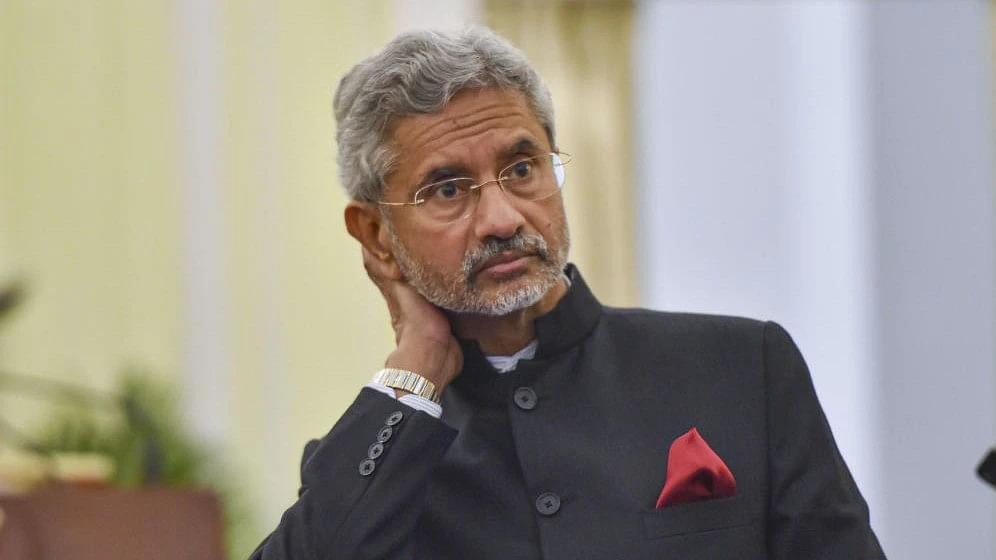New Delhi: External Affairs Minister S Jaishankar on Thursday subtly rebuffed the recent statement of the chief advisor of Bangladesh’s interim government, Muhammad Yunus, about India’s northeastern region being landlocked with no access to the ocean and his invitation to China to take advantage of the ‘opportunity’.
“Our northeastern region in particular is emerging as a connectivity hub for the BIMSTEC, with a myriad network of roads, railways, waterways, grids and pipelines. Furthermore, the completion of the Trilateral Highway will connect India’s North-East all the way to the Pacific Ocean, a veritable gamechanger,” Jaishankar said as he took part in a meeting of the BIMSTEC foreign ministers in Bangkok. “We are conscious that our cooperation and facilitation are an essential prerequisite for the smooth flow of goods, services and people in this larger geography,” he added, subtly reminding Yunus about the dependence of Bangladesh and the other BIMSTEC nations on India, which has “the longest coastline in the Bay of Bengal, of almost 6500 km”.
Yunus recently said that Beijing should turn the coastal region of Bangladesh into an extension of China’s economy. He pointed out that India’s seven northeastern states were all landlocked with no access to the sea, and this created an opportunity for China and Bangladesh. He said that China should take advantage of Bangladesh’s unique position as the “guardian of the ocean”.
His statement caused unease in New Delhi ahead of his proposed meeting with Prime Minister Narendra Modi on the sidelines of the BIMSTEC summit in Bangkok on Friday.
Jaishankar on Thursday reminded Yunus that India shared borders not only with five BIMSTEC members and connected most of them but also provided much of the interface between the Indian Sub-continent and ASEAN (Association of Southeast Asian Nations).
“Keeping this geo-strategic factor in mind, we have devoted increasing energies and attention to the strengthening of BIMSTEC in the last decade. We also believe that cooperation is an integrated outlook, not one subject to cherry picking,” he said, sending out New Delhi’s strong message to the interim government of Bangladesh.
The de facto foreign minister of the interim government of Bangladesh, Mohammad Touhid Hossain, was among his counterparts who attended the conclave in Bangkok.
Yunus met Chinese President Xi Jinping in Beijing recently. He invited China’s state-owned entities to participate in the comprehensive management and restoration project of Teesta, a transboundary river that flows from India to Bangladesh.
Dhaka sought Beijing’s support even as New Delhi had, a few months back, agreed to support the project and send a technical team to study it further.
The prospects of China taking up the river conservation project in Bangladesh have triggered unease in New Delhi, as it would allow the communist country to deploy its personnel so close to the Chicken’s Neck Corridor or Siliguri Corridor – the vital link between seven northeastern states and the mainland of India. – the link between India’s mainland and its seven northeastern States.
Yunus also conveyed to Xi that China’s state-owned companies could participate in projects such as the modernization and expansion of Mongla Port facilities in Bangladesh. Dhaka also conveyed its willingness to work with Beijing to promote the construction of the Chittagong China Economic and Industrial Park near the Southeastern Coast of Bangladesh, according to a joint statement issued after the Yunus-Xi meeting.
Dhaka had in 2017 agreed to let New Delhi use the ports in Chittagong and Mongla for the transportation of goods to and from India.
Yunus took over as the chief advisor of the interim government in Dhaka on August 8, 2024, three days after Sheikh Hasina’s Awami League government collapsed in the wake of a mass protest across Bangladesh over police crackdown on students and youths agitating against reservation in government recruitment.
Sheikh Hasina has been living in India ever since she flew onboard a military aircraft from Dhaka to the Indian Air Force base at Hindon near New Delhi on August 5, 2024.
India’s protest against the persecution of Hindus and other minority communities in Bangladesh after the change of government in the neighbouring nation, India’s silence over the request by the interim government of Bangladesh for extradition of Sheikh Hasina or its protest against her virtual addresses delivered from India on recent developments in Bangladesh, including the vandalism and demolition of the historic residence of her father and the founder of the nation Bangabandhu Sheikh Mujibur Rahman, emerged as irritants in the bilateral relations.
